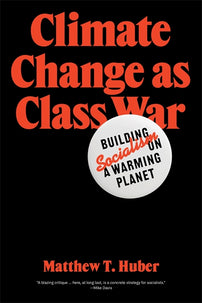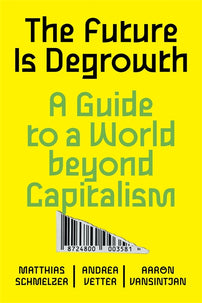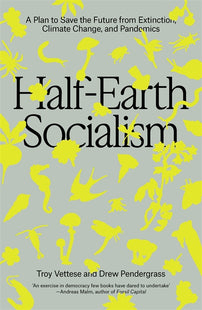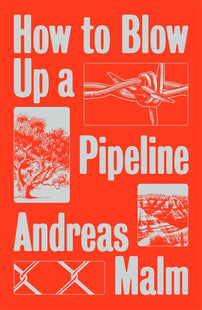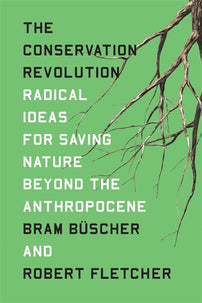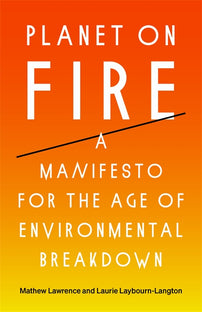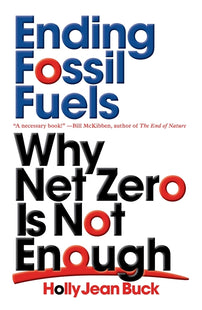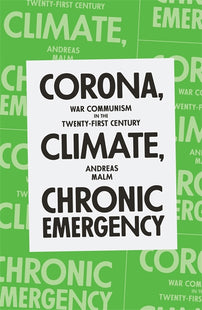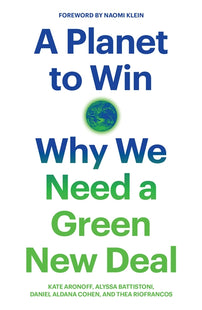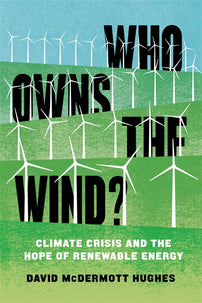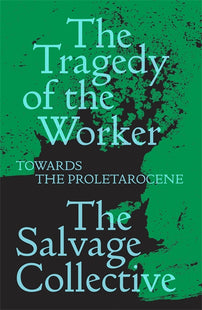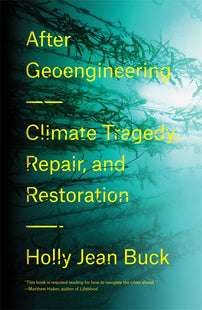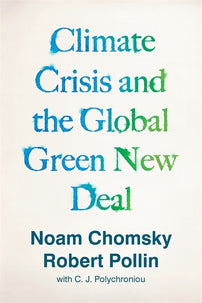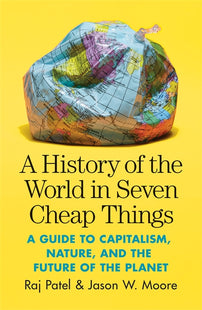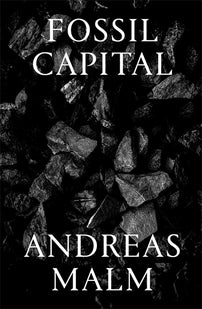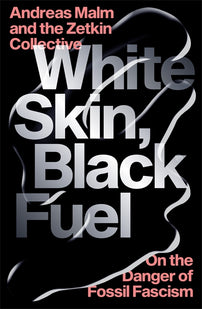Eco-socialist futures
We need radical ideas and systemic change to combat the urgent threat of climate disaster. This reading list of eco-utopian thinking can help guide us.
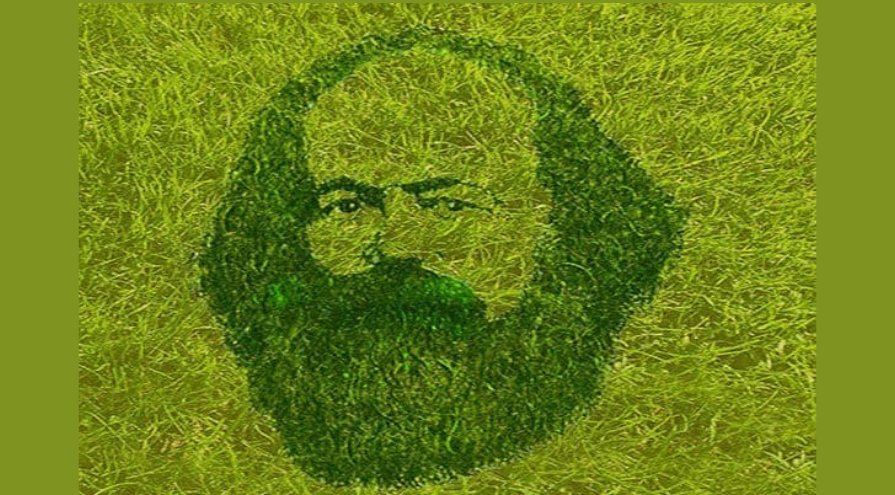
Over the next generation we will be forced to confront a dystopian future of climate disaster and mass extinction. Yet the only ‘solutions’ on offer – from our world leaders and corporations – are catastrophic geoengineering schemes, privatized conservation, and ‘net-zero targets’ that will do little to reverse the damage.
The books on this list take an alternative approach: proposing radical climate solutions rooted in radical political change. From destroying the fossil fuel infrastructure that seeks to destroy our planet, to rewilding half the earth, a complete conservation revolution, rethinking our economic systems, and drastically reducing consumption by the world’s wealthiest, there is much that we can do to understand and approach the climate struggle differently.
Why the struggle against climate change is a class struggle
The climate crisis is not primarily a problem of ‘believing science’ or individual ‘carbon footprints’—it is a class problem rooted in who owns, controls and profits from material production. As such, it will take a class struggle to solve.
[book-strip index="2" style="buy"]We need to break free from the capitalist economy. Degrowth gives us the tools to bend its bars.
Economic growth isn’t working, and it cannot be made to work. Offering a counter-history of how economic growth emerged in the context of colonialism, fossil-fueled industrialization, and capitalist modernity, The Future Is Degrowth argues that the ideology of growth conceals the rising inequalities and ecological destructions associated with capitalism, and points to desirable alternatives to it.
[book-strip index="3" style="buy"]A plan to save the earth and bring the good life to all.
This book covers:
• Rewilding half the earth to absorb carbon emissions and restore biodiversity
• A rapid transition to renewable energy, paired with drastic cuts in consumption by the world’s wealthiest
• Global veganism to cut down on energy and land use
• Worldwide socialist planning to efficiently and equitably manage production
• The involvement of everyone—even you!
Why resisting climate change means combatting the fossil fuel industry.
In this lyrical manifesto, noted climate scholar (and saboteur of SUV tires and coal mines) Andreas Malm makes an impassioned call for the climate movement to escalate its tactics in the face of ecological collapse. We need, he argues, to force fossil fuel extraction to stop—with our actions, with our bodies, and by defusing and destroying its tools. We need, in short, to start blowing up some oil pipelines.
[book-strip index="5" style="buy"]A post-capitalist manifesto for conservation.
Conservation needs a revolution. This is the only way it can contribute to the drastic transformations needed to come to a truly sustainable model of development. Building a razor-sharp critique of current conservation proposals and their contradictions, Büscher and Fletcher argue that the Anthropocene challenge demands something bigger, better and bolder. Something truly revolutionary. They propose convivial conservation as the way forward.
[book-strip index="6" style="buy"]A radical manifesto for how to deal with environmental breakdown.
Laurie Laybourn-Langton and Mathew Lawrence argue that it is not enough merely to spend our way out of the crisis; we must also rapidly reshape the economy to create a new way of life that can foster a healthy and flourishing environment for all.
Download our free companion ebook, Beyond the Ruins: The Fight Against Environmental Breakdown.
[book-strip index="7" style="buy"]Ending the Fossil Fuel Industry is the only credible path for climate policy.
Around the world, countries and companies are setting net-zero carbon emissions targets. But what will it mean if those targets are achieved? One possibility is that fossil fuel companies will continue to produce billions of tons of atmospheric CO2 while relying on a symbiotic industry to scrub the air clean. Focusing on emissions draws our attention away from the real problem: the point of production.
[book-strip index="8" style="buy"]What does the COVID 19 tell us about the climate breakdown, and what should we do about it?
In Corona, Climate, Chronic Emergency, leading environmental thinker, Andreas Malm demands that this war-footing state should be applied on a permanent basis to the ongoing climate front line. He offers proposals on how the climate movement should use this present emergency to make that case. There can be no excuse for inaction any longer.
[book-strip index="9" style="buy"]In the twenty-first century, all politics are climate politics.
A Planet to Win explores the political potential and concrete first steps of a Green New Deal. It calls for dismantling the fossil fuel industry, building beautiful landscapes of renewable energy, and guaranteeing climate-friendly work, no-carbon housing, and free public transit. And it shows how a Green New Deal in the United States can strengthen climate justice movements worldwide.
[book-strip index="10" style="buy"]Why the wind, and energy it produces, should not be private property.
The energy transition has begun. To succeed—to replace fossil fuels with wind and solar power—that process must be fair. David McDermott Hughes examines that anti-industrial, anti-corporate resistance, drawing on his time spent conducting field research in a Spanish village surrounded by wind turbines.
[book-strip index="11" style="buy"]Facing irreversible climate change, the planet is en route to apocalypse.
The Tragedy of the Worker is a brilliant, stringently argued pamphlet reflecting on capitalism’s death drive, the left’s complicated entanglements with fossil fuels, and the rising tide of fascism.
[book-strip index="12" style="buy"]What if the people seized the means of climate production?
Both critical and utopian, speculative and realistic, After Geoengineering presents a series of possible futures. Rejecting the idea that technological solutions are some kind of easy workaround, Holly Jean Buck outlines the kind of social transformation that will be necessary to repair our relationship to the earth if we are to continue living here.
[book-strip index="13" style="buy"]Climate change: watershed or endgame?
In this compelling new book, Noam Chomsky, the world’s leading public intellectual, and Robert Pollin, a renowned progressive economist, map out the catastrophic consequences of unchecked climate change—and present a realistic blueprint for change: the Green New Deal.
[book-strip index="14" style="buy"]How has capitalism devastated the planet—and what can we do about it?
Bringing the latest ecological research together with histories of colonialism, indigenous struggles, slave revolts, and other rebellions and uprisings, Patel and Moore demonstrate that throughout history crises have always prompted fresh strategies to make the world cheap and safe for capitalism.
NOT AVAILABLE IN NORTH AMERICA
[book-strip index="15" style="buy"]How capitalism first promoted fossil fuels with the rise of steam power.
The more we know about the catastrophic implications of climate change, the more fossil fuels we burn. How did we end up in this mess? In this masterful new history, Andreas Malm claims it all began in Britain with the rise of steam power.
[book-strip index="16" style="buy"]What does the rise of the far right mean for the battle against climate change?
In the first study of the far right’s role in the climate crisis, White Skin, Black Fuel presents an eye-opening sweep of a novel political constellation, revealing its deep historical roots
[book-strip index="17" style="buy"]An urgent, FREE downloadable ebook that asks: should we start blowing up pipelines, occupying coal mines, and destroying property to address global climate change?
Collected here are a set of essays that grapple with the idea of direct action and eco-sabotage, survey climate activism around the world, and argue for the necessity of building a fighting global movement against capitalism and its fossil fuel regime.
Contributors include: Alyssa Battistoni, James Butler, João Camargo, Jen Deerinwater, Bue Rübner Hansen, Tara Houska, Benjamin Kunkel, Anabela Lemos and Erika Mendes from Justiça Ambiental! (Mozambique), Andreas Malm, MOTH Collective, Siihasin Hope, Brototi Roy, Richard Seymour, and many more.
Further reading lists:
Theorizing the Climate Crisis: a reading list around how different theories of the climate crisis shape our understanding of what must be done.
The Climate Crisis and COVID-19: an activist focused reading list looking at what we need to do to move beyond these interconnected crises.
Environment and Ecology: Verso student reading (incorporating books looking at the climate crisis and political economy, the global green new deal, and more).
Radical Futures: books to help us re-imagine new futures.
